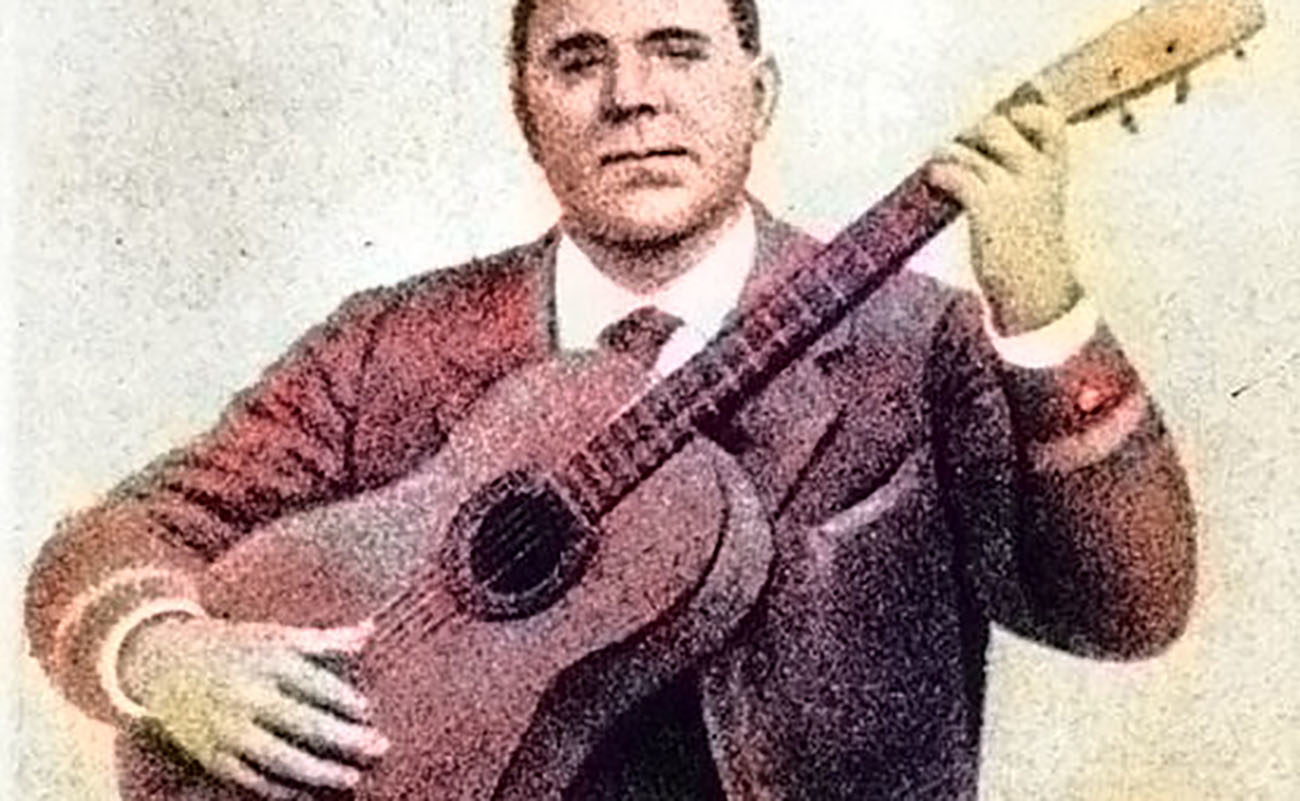Grandpa and marginalized flamenco
-Grandpa, did you read the newspapers on Wednesday? Someone wrote that it was Juan Breva who took flamenco out of the fringes into the mainstream. I guess you’ll have something to say about this, right? It’s insanity, people just say whatever comes to their minds. -Indeed, it’s ridiculous, Manolito. Odd stuff. Now, there’s a new Gypsy messiah proclaiming that Gypsies are

-Grandpa, did you read the newspapers on Wednesday? Someone wrote that it was Juan Breva who took flamenco out of the fringes into the mainstream. I guess you’ll have something to say about this, right? It’s insanity, people just say whatever comes to their minds.
-Indeed, it’s ridiculous, Manolito. Odd stuff. Now, there’s a new Gypsy messiah proclaiming that Gypsies are born knowing flamenco, but non-Gypsies must learn it for years. So, Paco de Lucía, for example, was the best, a genius, because he “learned”, but Camarón would have been born already having a doctorate in duendes and compás. Remind me to propose a conference to sort out this enigma.
-And what does this have to do with Juan Breva, granpa? You digress like a crazy person.
-Nothing, it just drives me nuts. Antonio Ortega Escalona, Breva’s real name, was born in Vélez- Málaga in 1844, if my memory doesn’t fail. When he started singing in theaters, other well-established cantaores had done it already, such as Silverio and Paco el Gandul, two ground-breaking artists from Seville. It’s true that Breva was a great flamenco star, one of the most important of the 19th century, and he caused quite a stir when he went to Madrid, where he performed in theaters twice daily because he would draw bigger crowds than the Italian tenors of those days. That is, Breva revolutionized Andalusian cante as of 1880, approximately. He was the favorite cantaor of king Alfonso XII, who would squeeze out of his official residence to watch him perform or would invite him to his palace. That much is true, of course. But claiming that he was who took flamenco out of the fringes into the mainstream, not really. It’s like when people say that it was Mairena or Marchena who took cante out of the taverns. That’s bullshit (pardon my French).
-Yet, it makes sense for Málaga to honor its most important cantaor, right?
-For sure, and it should do the same with Canario de Álroa, who in 1882 already performed with Breva in Madrid’s theaters and cafes, singing even better than him, although Canario was ten years younger. At the time, he was known as Canario Malagueño, because although he was born in Álora, he grew up in the El Palo district of Málaga. His death in 1885 cut short a very promising career. He was ahead of his time, revolutionizing the malagueña and rivalling Breva. Yet, Málaga barely remembers him.
-What do you know about Canario’s death?
-He was killed by Lorenzo Colomer Ricard, from Gerona, the father of Rubia de Málaga. Canario used to perform at El Burrero and in summer he was scheduled to perform for a month at Nevería del Chino, which was located next to the bridge in Triana, close to where the monument to Antonio Mairena now stands. Rubia’s father had threatened him several times and on the night of August 13 he waited for him outside the café, where they got into a fight and Canario was stabbed in the heart, dying instantly.
-Wasn’t La Rubia the lover of Canario?
-Yes, although this wasn’t the reason for this crime, but rather the rivalry between them. La Rubia would imitate Álora, and apparently she started to be more successful than Canario himself. So, Canario demanded that she was banned from wherever he performed. Tired of his daughter’s sufferings and the humiliations of this cantaor, the father decided to send him to another world. He was put on trial and jailed, but was pardoned when the king Alfonso XIII was born in 1886. Quite a story, isn’t it?
-In those days Juan Breva was already famous, right?
-Very much so, one of the most renowned of all.
-Grandpa, those stories make flamenco even more interesting. Thank you.
-That’s great, you’re very welcome.
Translated by P. Young




